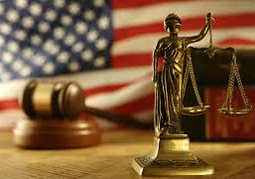
A 2nd Judicial Circuit in Virginia judge has ruled that fingerprints are not protected by the Fifth Amendment, a decision that has clear privacy implications for fingerprint-protected devices like newer iPhones and iPads.
According to Judge Steven C. Fucci, while a criminal defendant can’t be compelled to hand over a passcode to police officers for the purpose of unlocking a cellular device, law enforcement officials can compel a defendant to give up a fingerprint.
The Fifth Amendment states that "no person shall be compelled in any criminal case to be a witness against himself," which protects memorized information like passwords and passcodes, but it does not extend to fingerprints in the eyes of the law, as speculated by Wired magazine last year.
The ruling stemmed from a case involving David Baust, who was accused of strangling his girlfriend.
Prosecutors believed Baust may have stored video of the attack on his phone, and requested that the judge force him to unlock it. If protected by a passcode, Baust will not be required to unlock his phone under the Fifth Amendment, but if protected with a fingerprint, he could potentially be forced to unlock the device.
Broccoletti called Frucci’s ruling on target. The law is clear about fingerprints, he said, and the judge saw his point about pass codes.
Macie Pridgen, a spokeswoman for the Commonwealth’s Attorney’s Office, said prosecutors still are considering whether to appeal.
Source: tomsguide.com
